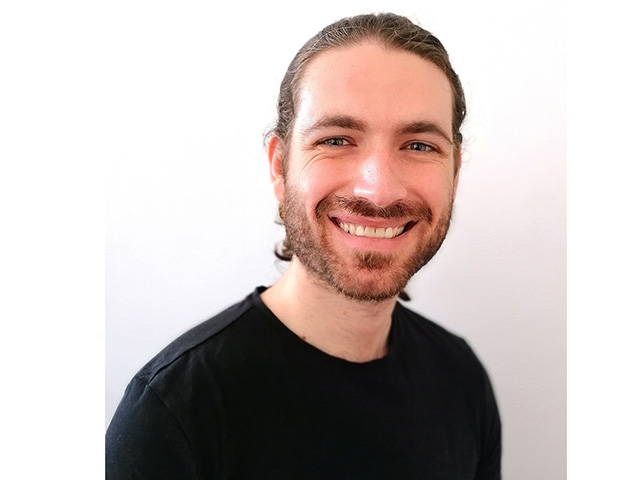Local startup InstaDeep secures backing for Covid-variant early warning system
By Staff Writer 26 January 2022 | Categories: news
Africa’s contribution to the world of artificial intelligence is in the spotlight this week with the announcement by born-in-Africa AI disruptor InstaDeep that it has raised $100 million – while welcoming high-profile backers including BioNTech, Deutsche Bahn and others – to help scale its decision-making AI products that solve real-world problems.
The start-up, which made international headlines this month after it co-developed an AI-powered early warning system for high-risk Covid variants with BioNTech, was founded in 2014 in North Africa. Today, it is a leader in decision-making AI products, with a headquarters in London and AI research and engineering teams in Tunis, Paris, Lagos, Dubai and Cape Town.
“When we started InstaDeep, forecasts for AI's contribution to global economic growth neglected to even mention Africa,” recalls Karim Beguir, InstaDeep’s Co-Founder and CEO. "For me, this was a call to arms. We needed to change the status quo. It could not be that Africa was excluded when it came to shaping the future of AI."
The status quo has changed. InstaDeep announced that it has raised $100 million and closed a Series B round led by Alpha Intelligence Capital together with CDIB. Investors in the round included BioNTech, Chimera Abu Dhabi, Deutsche Bahn’s DB Digital Ventures, Google, G42 and Synergie.
InstaDeep will use the funding to advance its high-performance computing infrastructure optimised for Decision-Making AI, continue to hire elite talent – particularly in South Africa – and accelerate the launch of disruptive AI products across multiple industries – including biotech, logistics, transportation and electronics manufacturing. The firm is also expanding its global presence into the United States.
Detecting new high-risk Covid variants
The global interest in the BioNTech-InstaDeep Covid Early Warning System showed the appetite for innovative AI thinking from beyond Silicon Valley. InstaDeep worked with BioNTech, the German biotech company behind the Pfizer Covid-19 vaccine, to develop an AI tool which detects high-risk SARS-CoV-2 variants based on their genetic code.
The AI system identified more than 90 percent of variants of concern, on average two months before their designation by the World Health Organization. It detected the highly transmissible Omicron on the day its sequence became available among more than 70,000 novel variants discovered in October and November 2021.
“More than 10,000 novel variant sequences are discovered every week and human experts simply cannot cope with complex data at this scale,” Beguir said. “For the first time, high-risk variants could be detected on the spot, potentially saving months of precious time.”
African AI expertise to address African problems
Using AI to tackle the world’s toughest problems is in InstaDeep’s DNA and the company's South African team is busy working on new ways to advance AI so it can help solve challenges in areas such as health, transportation and resource management.
A particular interest for the Cape Town-based InstaDeep team is “Multi-Agent Reinforcement Learning,” or MARL, an approach for solving large-scale problems by getting many AI devices to work together, for example eliminating traffic congestion with self-driving cars. InstaDeep’s focus on the subject has already had an impact on South Africa’s AI ecosystem with Cape Town fast becoming an academic centre for MARL research.
The company stressedd that developing and working with local AI communities is also central to InstaDeep’s ethos. To empower other AI researchers, InstaDeep’s South African team also created an open-source MARL framework, called Mava – named after the Xhosa word for ‘experience’ – with the aim of accelerating innovative solutions to problems across the continent and beyond.
“This is a powerful and potentially game-changing technology given the number of important and highly impactful problems that it could help us solve,” said Arnu Pretorius, the AI Research Scientist who leads InstaDeep’s South Africa team. Pretorius himself is a prolific researcher, whose numerous presentations at world-leading academic AI conferences puts him in the ranks of Africa’s top AI researchers.
“Some of our work in this direction looked at managing scarce resources using MARL to potentially overcome issues such as the economic problem of balancing community and self-interest when managing common-pool resources such as water, arable land or the atmosphere. This work was presented at the most prestigious AI conference in the world, the conference on Neural Information Processing Systems, or NeurIPS – only the second time that research from Africa was presented there,” Pretorius said.
InstaDeep’s pan-African team also collaborated with Google to predict desert locust breeding grounds in advance to alert local farmers across Africa of potential threats from devastating locust outbreaks, which was also showcased at NeurIPS last month.
Empowering South Africa’s AI community
“We have research engineers not only focusing on research but also working on applied projects in collaboration with other offices, clients and the research teams. These projects range from biotechnology to hardware design using AI,” Pretorius added.
"In South Africa’s AI landscape, InstaDeep occupies a very unique space, blending engineering and research, while having a positive impact on the world,” he said. “We also see ourselves as playing an important role in the larger AI community when it comes to strengthening connections, upskilling and providing opportunities for learning.
Examples of these efforts include our close collaboration with the Deep Learning Indaba, an organization dedicated to building Africa’s AI community, where we sit on the steering committee as well as participate as sponsors, volunteers and mentors. We have a passion for being of service,” he concluded.
Most Read Articles

Have Your Say
What new tech or developments are you most anticipating this year?



